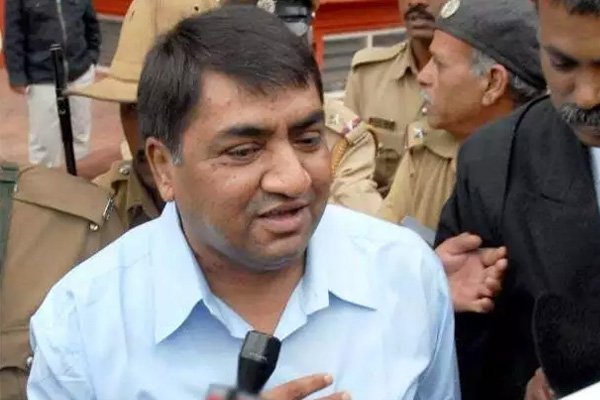Telgi Scam: In the 1990s, word spread in the dance bars of Mumbai that a man spent ₹80 lakh on a beautiful dancer in a single night. The amount mentioned in the rumor kept increasing for a few hours before reaching “80 lakhs”. However, there was no doubt that Abdul Karim Telgi had tipped a considerable amount of money to the dancer. The police are also involved in the inner circles of the dance bar. This news aroused the curiosity of the police, who discovered a man who had built an elaborate business of counterfeit stamp paper (stamp scam) and other forms of revenue stationery. He had a perennial source of income.
Telgi, who went hungry as a child and sold fruit as a young man, made a fatal mistake while trying to impress a dancer. But at that time, even the police did not know how big Telgi’s operation was. In fact, no one still knows the full scope of his scam. What is certain is that he stole thousands of crores of rupees from the government.
Telgi is the subject of SonyLIV’s show Scam 2003, part of a series on fascinating scams created by Hansal Mehta and Applause Entertainment. Telgi’s story is rare because it offers a clear glimpse of the creation of a class of Indian politicians and the vast amounts of money inside a corrupt country. If he had fully developed as a politician the story would never have come to light. However, he was reaching the point where the entire past of a ‘leader’ could be erased.
We like cheaters, especially if they haven’t cheated us. My favorite is the guy who sold insurance to railway passengers who wanted to travel without a ticket – if they were caught by the ticket checker, he would cover the fine.
And there was that genius or a group of geniuses who claimed they were from the Income Tax Department, placed classified advertisements in the newspaper to recruit apprentices, and raided a jewelery shop and disappeared forever. Telgi was different. He was somewhere between a fraudster and a more dangerous politician. He was convicted of “culpable homicide” after a man who stole from him ended up as a corpse in the Arabian Sea, where there is an uncomfortably high tide.
Telgi’s story was uncovered by journalist Sanjay Singh, whose book, Telgi: A Reporter’s Diary, is the primary source material for the online series. When he first received a confidential police report detailing the full scale of Telgi’s scam, the veteran journalist did not share its details even with his boss Rajdeep Sardesai. “If you want to keep a secret, don’t tell your boss about it.”
In the book, Singh writes that at its peak, Telgi’s enterprise of selling counterfeit stamp papers across India employed hundreds of people. “The top tier of Telgi’s workforce included chartered accountants and senior marketing managers. The lower level included over three hundred and fifty agents, graduate sales and marketing executives, delivery teams, and telemarketing teams.”
Telgi could not run the operation without the help of politicians and police. In fact, any powerful person who got wind of his operation extorted money from him. He fed them all. By this time, Telgi had already been found guilty of forgery and fraud, but the police never arrested him. He was “a fugitive.” The police told the court surprising facts as to why they could not catch him. One police officer’s excuse, writes Singh, was, “I was so busy listening to the court’s verdict that I missed Telgi running out of the courtroom.”
In return, Telgi enriched all those who could protect him. Then what led to his arrest? What brought him to justice? This is a part of the lowest rated question in India. Why do right things happen in the country?
Singh asked Telgi to solve the mystery. After Telgi gave a heavy tip to the bar dancer, the new policemen kept coming to his door to extort money from him. Telgi had no option. “My newspaper was also like currency. I gave them my paper, they sold it in the market and made money.” But then, they “grew greedy.” They also included the names of Telgi’s wife and children in their charge sheet against him. They did this to get him more money. According to Telgi, they had no evidence against Telgi’s family, but if they could harass them they thought they would pay them more for their freedom. But this was a mistake, just like Telgi’s generosity towards the bar dancer.
Telgi knew that once he gave in there would be no end to the extortion. He defies the police, and in a series of events, as they try to build a case against him to bring him down, he creates a monster that spirals out of control. Ultimately, rival police groups, out of pure self-interest, will start a process they cannot control. As is often the case, justice was the accidental result of a war between two powerful camps.
Telgi was convicted on multiple charges and spent three decades in prison. But after being in jail for almost a decade, he died in 2017 at the age of 56. Some politicians and several senior police officers were implicated but were later found innocent.
Telgi’s story might also have been different, and certainly a mystery, if he had invested in his political influence. Charisma is nonsense. Attend the Legislative Assembly session, you will be freed from the idea that charisma wins elections. Telgi donated crores of rupees to charity, but that was a minor corporate-social responsibility ratio compared to his wealth. However, this was enough for more than 2,000 people to attend his funeral.

